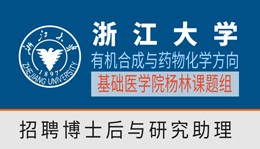当前位置:
X-MOL 学术
›
Org. Process Res. Dev.
›
论文详情
Our official English website, www.x-mol.net, welcomes your feedback! (Note: you will need to create a separate account there.)
First Deliveries of API Enabling Early Drug Development
Organic Process Research & Development ( IF 3.1 ) Pub Date : 2024-06-21 , DOI: 10.1021/acs.oprd.4c00212 Aaron C. Sather 1 , James J. Douglas 2
Organic Process Research & Development ( IF 3.1 ) Pub Date : 2024-06-21 , DOI: 10.1021/acs.oprd.4c00212 Aaron C. Sather 1 , James J. Douglas 2
Affiliation
This article is part of the First Deliveries of API Enabling Early Drug Development special issue. The discovery and development of a new drug is a long and arduous process, with more failures realized than successes. (1) Although technological advancements coupled with improved experimental techniques such as high-throughput experimentation, (2) library screening, and data-rich experimentation (3) have aimed to speed up particular bottlenecks of the drug discovery pipeline, challenges remain that impede the advancement of potential therapeutics into the later stages of development. In particular, the timely bulk delivery of quality active pharmaceutical ingredients (APIs) supporting preclinical and first-in-human (FIH) clinical studies play a pivotal role in expediting the drug discovery process, as the initial stages of drug development are essential for assessing the safety of potential treatments. (4) Because the production of an API is often the rate-limiting step for this part of the pipeline, the invention and implementation of novel and robust synthetic methodologies has the potential to accelerate the drug discovery process to enable faster access to critical path deliveries, exemplifying the symbiotic relationship between organic chemistry and the advancement of human health. (5) This importance is further highlighted by dedicated groups within many pharmaceutical companies aiding in the adoption and creation of innovative technologies and chemical transformations to ease the developmental transition between the discovery space and later-stage process chemistry, reducing the time to first delivery. This OPR&D special issue focuses on these first deliveries of APIs, with real-world examples that have enabled FIH clinical studies. While traditional aspects of process chemistry will be evident in many of the articles in this special issue, speed to the target takes priority in almost every instance. Multiple routes are often considered for each program, though none are optimized and refined to the extent seen in the late-development stage due to the inherent uncertainty in drug discovery. A constant balance exists between developing chemistry to produce quality API as quickly as possible while not overinvesting resources when project attrition rates are high. As each program has its own challenges and every organization operates differently, through the presented articles we aim to provide insight into the decision-making processes involved in this pivotal part of the drug discovery pipeline as well as highlight novel chemistry and processes that made these first batches a reality. Aaron C. Sather is a Boston-based Principal Scientist in Process Research and Development at Merck & Co. After earning his A.A. at Highline Community College, he obtained a B.Sc. at the University of Oregon, training in the lab of Darren W. Johnson. He was the final graduate student of Julius Rebek, Jr., earning his Ph.D. at Scripps Research. He then traveled to Massachusetts Institute of Technology and was an NIH Postdoctoral Fellow with Stephen L. Buchwald, after which he joined Merck & Co., starting his industrial career in 2017. James J. Douglas completed his Ph.D. under the supervision of Andrew Smith at the University of St Andrews, followed by a LIFA Eli Lilly Postdoctoral Fellowship working in collaboration with the group of Corey Stephenson at the University of Michigan. He subsequently joined AstraZeneca Early Process Chemistry Macclesfield in 2016 and is currently the global director for high-throughput experimentation. In 2022 he was a Royal Society Entrepreneur-In-Residence and is now a part-time visiting chemistry professor at the University of Manchester. This article references 5 other publications. This article has not yet been cited by other publications. This article references 5 other publications.
中文翻译:

首批 API 交付促进早期药物开发
本文是首次交付 API 促进早期药物开发特刊的一部分。新药的发现和开发是一个漫长而艰巨的过程,失败的次数多于成功的次数。 (1) 尽管技术进步加上改进的实验技术,如高通量实验、(2) 文库筛选和数据丰富的实验 (3) 旨在加速药物发现管道的特定瓶颈,但仍然存在阻碍药物发现的挑战将潜在的治疗方法推进到开发的后期阶段。特别是,及时批量交付优质活性药物成分 (API) 支持临床前和首次人体 (FIH) 临床研究在加快药物发现过程中发挥着关键作用,因为药物开发的初始阶段对于评估至关重要潜在治疗的安全性。 (4) 由于 API 的生产通常是这部分管道的限速步骤,因此新颖且强大的合成方法的发明和实施有可能加速药物发现过程,从而更快地获得关键路径交付,体现了有机化学与人类健康进步之间的共生关系。 (5) 许多制药公司内的专门小组进一步强调了这一重要性,这些小组协助采用和创造创新技术和化学转化,以简化发现空间和后期工艺化学之间的发展过渡,从而缩短首次交付的时间。本期 OPR&D 特刊重点关注这些首批 API 交付,以及启用 FIH 临床研究的真实示例。 虽然过程化学的传统方面在本期特刊的许多文章中都很明显,但几乎在所有情况下,实现目标的速度都是优先考虑的。每个项目通常都会考虑多种路线,但由于药物发现固有的不确定性,没有一种路线能够达到开发后期阶段所见的程度。当项目损耗率很高时,开发化学技术以尽快生产优质原料药,同时又不过度投资资源,两者之间存在着持续的平衡。由于每个项目都有其自己的挑战,并且每个组织的运作方式都不同,因此通过所发表的文章,我们旨在深入了解药物发现管道这一关键部分所涉及的决策过程,并重点介绍使这些项目成为第一个项目的新颖化学和流程。批处理现实。 Aaron C. Sather 是默克公司驻波士顿的工艺研究与开发首席科学家。在海莱社区学院,他获得了学士学位。在俄勒冈大学,在 Darren W. Johnson 的实验室接受培训。他是小朱利叶斯·雷贝克 (Julius Rebek, Jr.) 的最后一名研究生,并获得了博士学位。在斯克里普斯研究中心。随后,他前往麻省理工学院,与 Stephen L. Buchwald 一起担任 NIH 博士后研究员,之后加入默克公司,于 2017 年开始其工业职业生涯。在圣安德鲁斯大学 Andrew Smith 的监督下,随后与密歇根大学的 Corey Stephenson 团队合作获得了 LIFA Eli Lilly 博士后奖学金。 随后,他于 2016 年加入阿斯利康早期工艺化学 Macclesfield,目前担任高通量实验全球总监。 2022年,他成为英国皇家学会常驻企业家,现在是曼彻斯特大学兼职客座化学教授。本文参考了其他 5 篇出版物。这篇文章尚未被其他出版物引用。本文参考了其他 5 篇出版物。
更新日期:2024-06-25
中文翻译:

首批 API 交付促进早期药物开发
本文是首次交付 API 促进早期药物开发特刊的一部分。新药的发现和开发是一个漫长而艰巨的过程,失败的次数多于成功的次数。 (1) 尽管技术进步加上改进的实验技术,如高通量实验、(2) 文库筛选和数据丰富的实验 (3) 旨在加速药物发现管道的特定瓶颈,但仍然存在阻碍药物发现的挑战将潜在的治疗方法推进到开发的后期阶段。特别是,及时批量交付优质活性药物成分 (API) 支持临床前和首次人体 (FIH) 临床研究在加快药物发现过程中发挥着关键作用,因为药物开发的初始阶段对于评估至关重要潜在治疗的安全性。 (4) 由于 API 的生产通常是这部分管道的限速步骤,因此新颖且强大的合成方法的发明和实施有可能加速药物发现过程,从而更快地获得关键路径交付,体现了有机化学与人类健康进步之间的共生关系。 (5) 许多制药公司内的专门小组进一步强调了这一重要性,这些小组协助采用和创造创新技术和化学转化,以简化发现空间和后期工艺化学之间的发展过渡,从而缩短首次交付的时间。本期 OPR&D 特刊重点关注这些首批 API 交付,以及启用 FIH 临床研究的真实示例。 虽然过程化学的传统方面在本期特刊的许多文章中都很明显,但几乎在所有情况下,实现目标的速度都是优先考虑的。每个项目通常都会考虑多种路线,但由于药物发现固有的不确定性,没有一种路线能够达到开发后期阶段所见的程度。当项目损耗率很高时,开发化学技术以尽快生产优质原料药,同时又不过度投资资源,两者之间存在着持续的平衡。由于每个项目都有其自己的挑战,并且每个组织的运作方式都不同,因此通过所发表的文章,我们旨在深入了解药物发现管道这一关键部分所涉及的决策过程,并重点介绍使这些项目成为第一个项目的新颖化学和流程。批处理现实。 Aaron C. Sather 是默克公司驻波士顿的工艺研究与开发首席科学家。在海莱社区学院,他获得了学士学位。在俄勒冈大学,在 Darren W. Johnson 的实验室接受培训。他是小朱利叶斯·雷贝克 (Julius Rebek, Jr.) 的最后一名研究生,并获得了博士学位。在斯克里普斯研究中心。随后,他前往麻省理工学院,与 Stephen L. Buchwald 一起担任 NIH 博士后研究员,之后加入默克公司,于 2017 年开始其工业职业生涯。在圣安德鲁斯大学 Andrew Smith 的监督下,随后与密歇根大学的 Corey Stephenson 团队合作获得了 LIFA Eli Lilly 博士后奖学金。 随后,他于 2016 年加入阿斯利康早期工艺化学 Macclesfield,目前担任高通量实验全球总监。 2022年,他成为英国皇家学会常驻企业家,现在是曼彻斯特大学兼职客座化学教授。本文参考了其他 5 篇出版物。这篇文章尚未被其他出版物引用。本文参考了其他 5 篇出版物。






































 京公网安备 11010802027423号
京公网安备 11010802027423号